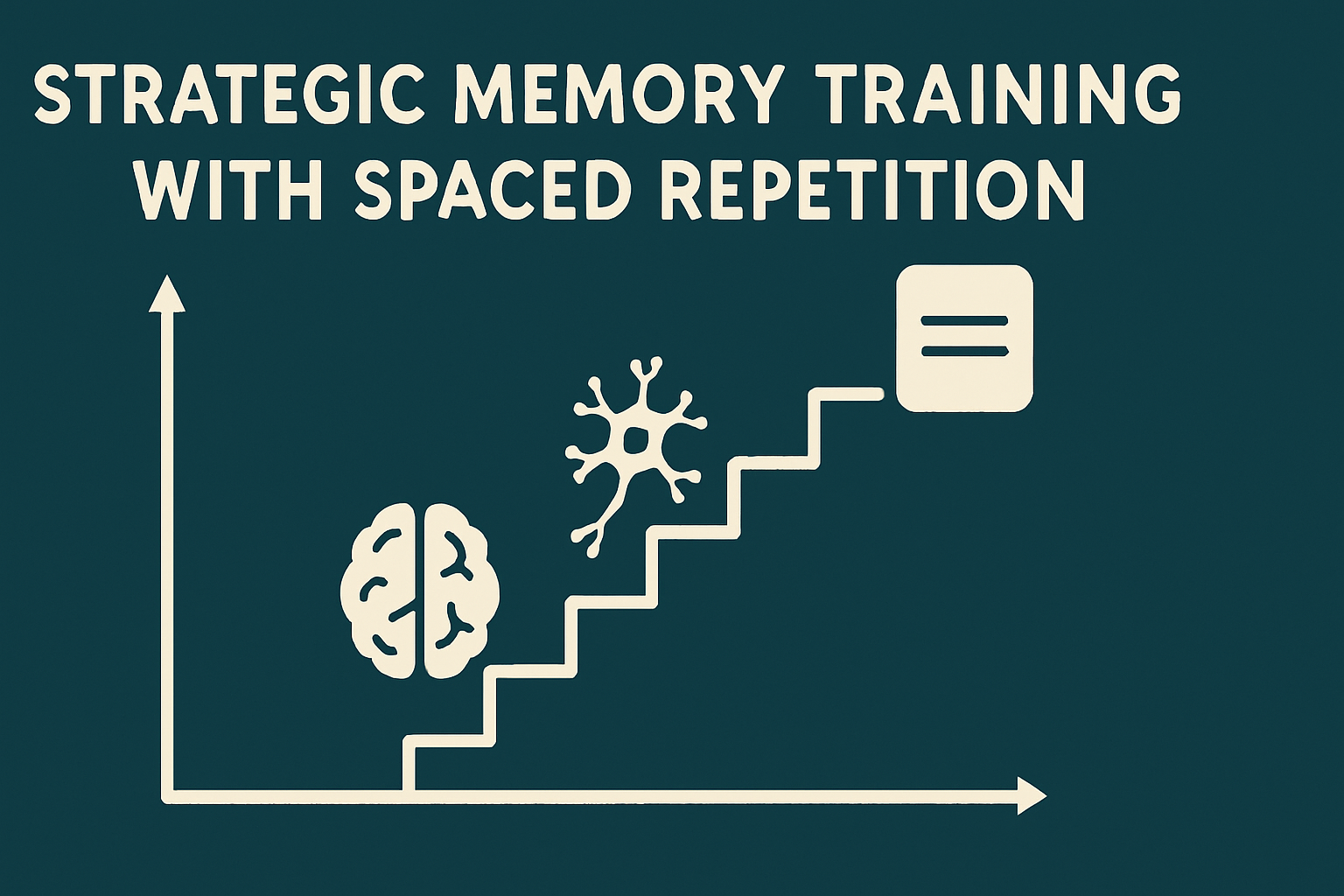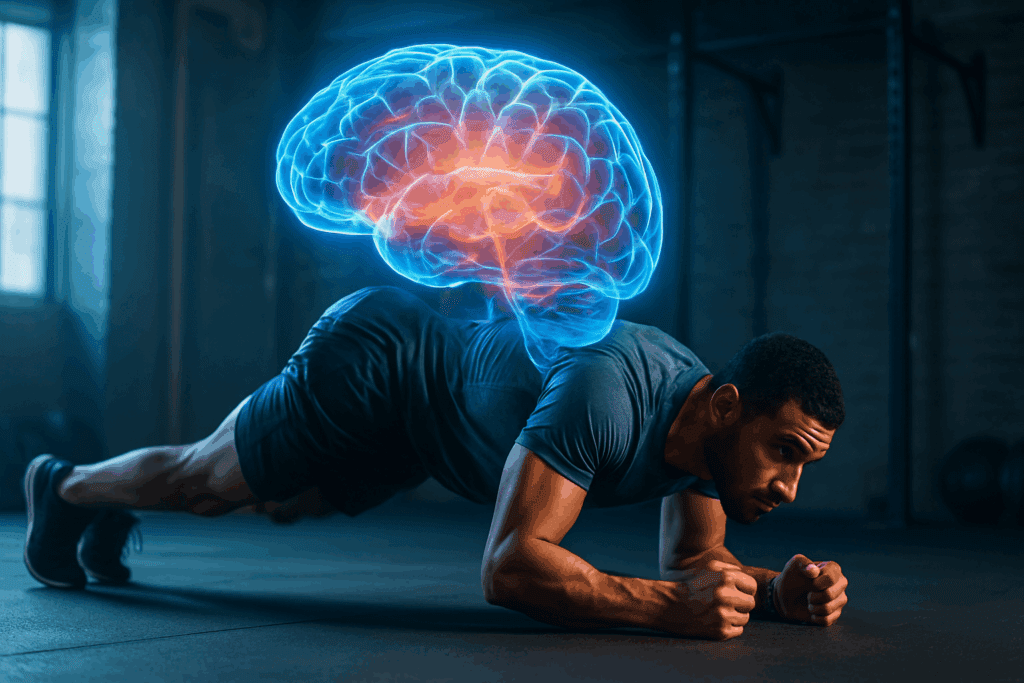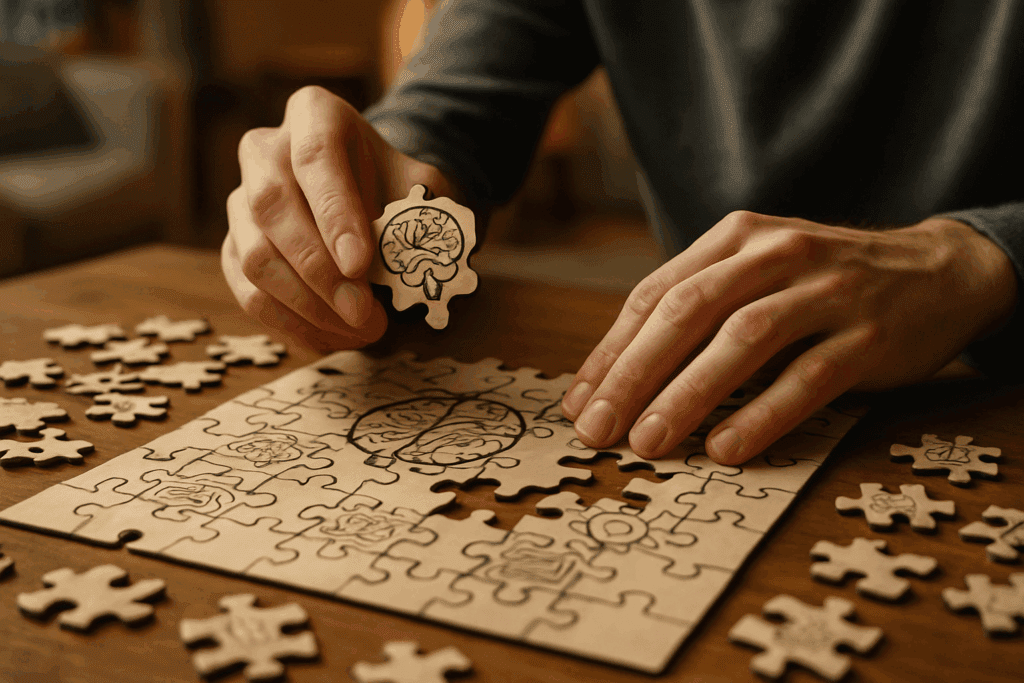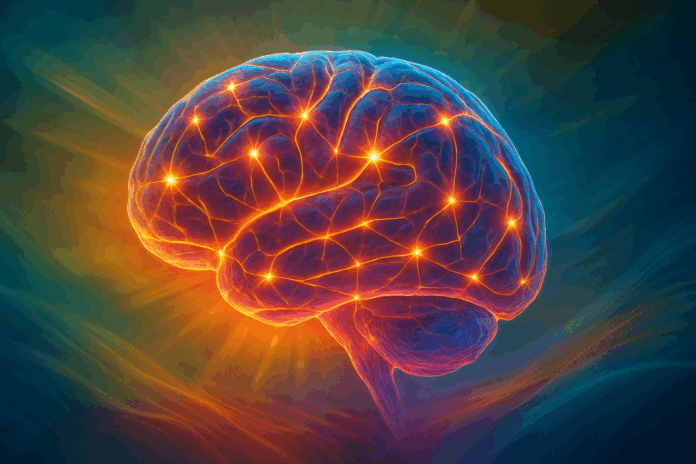In today’s world, where cognitive overload has become the norm and information is consumed at breakneck speed, the brain is often expected to function like a supercomputer. Yet, just like any other organ, the brain requires intentional care, stimulation, and rest to perform at its peak. In this science-based guide, we explore how to enhance mind power through proven mental exercises that promote long-term brain health and cognitive longevity. With growing interest in strategies that delay cognitive aging and improve memory, the focus on brain exercises for memory and vitality is more crucial than ever. This article offers insight into the best techniques to keep your brain young and resilient, grounded in neuroscience, and suitable for anyone looking to challenge their cognitive limits.
You may also like : 10 Brain-Boosting Benefits of Exercise: How Daily Movement Enhances Focus, Memory, and Mental Clarity
A well-maintained brain can adapt, grow, and function optimally throughout life. Whether you’re a student striving for better focus, a professional seeking sharper problem-solving skills, or an older adult interested in delaying memory decline, there are evidence-backed strategies to support a strong brain. Cognitive exercises for adults not only improve current function but also fortify against age-related decline. The following ten expert-approved mind workouts offer diverse, engaging, and science-supported approaches to increasing brain power and maintaining mental agility well into later years.

Mastering Neuroplasticity Through Learning a New Language
One of the most transformative ways to train your brain is by learning a new language. Language acquisition uniquely activates multiple areas of the brain, including the prefrontal cortex, hippocampus, and temporal lobes. These regions are crucial for working memory, long-term recall, and executive function. Engaging in language learning serves as a powerful mental exercise that not only challenges memory but also improves multitasking and decision-making skills. Moreover, bilingualism has been associated with delayed onset of dementia, reinforcing its role as one of the best techniques to keep the brain young.
Incorporating a new language into your routine requires sustained attention and frequent retrieval practice, both of which are essential in how to boost brain power. Apps like Duolingo or immersion techniques using media from another culture can make the process enjoyable while serving as effective exercises for mind and memory. Over time, you may notice increased cognitive flexibility—the brain’s ability to switch between thoughts or adapt to new rules. This is a fundamental component of how to enhance mind power and how to use more of your brain’s natural capabilities.

Nutrition for Neurological Vitality: Feeding a Strong Brain
No discussion on cognitive longevity is complete without considering the profound influence of nutrition on brain function. Scientific consensus increasingly supports that what you eat significantly impacts how to keep your brain healthy and improve its performance. Diets rich in omega-3 fatty acids, antioxidants, B vitamins, and polyphenols have been shown to protect against oxidative stress, reduce inflammation, and support neurogenesis.
Omega-3s found in fatty fish like salmon and sardines help maintain the structural integrity of brain cells and promote fluid communication between neurons. B vitamins, especially B6, B9 (folate), and B12, are critical for methylation processes and neurotransmitter production, making them essential for how to boost your mind power naturally. Furthermore, the Mediterranean and MIND diets have been repeatedly associated with reduced risk of Alzheimer’s and improved memory, demonstrating that nutrition itself can function as a form of mental exercise.
Adding fermented foods, such as kefir, kimchi, and yogurt, may further enhance mind power by supporting the gut-brain axis—the bidirectional communication system between the digestive tract and the brain. A balanced microbiome is now understood to regulate mood, cognition, and even attention span. Thus, strategic dietary choices are one of the best techniques to keep your brain young and alert.

Strategic Memory Training with Spaced Repetition
Memory is not simply a storage system; it’s an active, evolving network. One of the most effective brain exercises for memory enhancement is spaced repetition, a technique where information is reviewed at increasing intervals over time. This method strengthens neural pathways through reconsolidation, improving both short-term and long-term retention. It stands as one of the clearest examples of how you can increase your brain power through targeted training.
Spaced repetition systems (SRS), such as Anki, have been extensively researched and proven effective for learning complex material in medicine, law, and other demanding fields. This mental exercise challenges the brain to retrieve stored information repeatedly, reinforcing connections and improving recall accuracy. It is especially beneficial for older adults and students alike, making it one of the most accessible ways to practice exercises for mind vitality. By maintaining consistency with SRS, you are actively participating in how to strengthen brain power and preserve cognitive health.

Elevating Executive Function with Mindful Meditation
Mindful meditation may appear passive, but its impact on the brain is anything but. Regular mindfulness practice enhances gray matter density in the hippocampus, associated with memory, and in the prefrontal cortex, related to executive function. Meditation is not just about relaxation—it is a brain workout that strengthens attention control, emotional regulation, and mental resilience. These are essential pillars in how to keep your brain healthy over time.
Scientific studies reveal that as little as ten minutes of daily meditation can improve working memory, reduce anxiety, and improve sleep—all of which are vital to a strong brain. Mindfulness also teaches you how to challenge your brain by resisting distractions, focusing on the present, and observing thoughts without judgment. This process increases meta-cognition, or the ability to think about thinking, which directly supports how to utilize more of your brain’s potential. In doing so, you’re engaging in a highly effective way to increase your mind power naturally and sustainably.
Cognitive Flexibility Through Musical Training
Learning to play a musical instrument is one of the most stimulating exercises for mind development. It combines auditory processing, fine motor skills, memory, and emotional interpretation—all of which require synchronized brain activity across both hemispheres. Music training has been shown to increase white matter integrity and support neural plasticity, making it an essential component of how to keep your brain healthy across a lifetime.
Whether you pick up the piano, guitar, or violin, regular practice trains your brain to process patterns, adapt to errors, and focus deeply—qualities that translate well into everyday problem-solving. This form of mind workout also enhances auditory memory and has even been linked to improvements in verbal reasoning. For adults, especially, musical training acts as a form of mental exercise that sharpens both sensory and cognitive function. Engaging with music regularly supports not only emotional well-being but also serves as a powerful way to boost mind power.
Social Interaction as Cognitive Stimulation: The Power of Connection
Human beings are inherently social creatures, and meaningful social interaction is a powerful mental exercise that nurtures the brain in dynamic ways. Engaging in conversation requires rapid processing of language, interpretation of emotional cues, and memory recall—all within real-time social frameworks. These interactions serve as cognitive workouts that stimulate brain regions responsible for empathy, executive function, and verbal fluency.
Studies consistently show that socially active individuals have lower risks of cognitive decline, supporting the idea that social engagement is one of the most accessible yet powerful brain exercises for memory and flexibility. Volunteering, joining community groups, or maintaining close family ties contributes to a sense of purpose, reduces stress hormones, and supports neuroplasticity. This dynamic is especially important when considering how to enhance mind power across the lifespan.
Social interaction also fosters resilience. Sharing ideas, problem-solving together, or simply engaging in playful banter can all train your brain in ways that solo activities cannot. For older adults, particularly those who live alone, prioritizing regular social interaction can serve as a critical intervention for preserving brain health and emotional well-being.

High-Intensity Interval Training (HIIT) for Cognitive Resilience
While mental stimulation is essential, physical activity plays an equally important role in how to increase brain power. High-Intensity Interval Training (HIIT), a form of cardiovascular exercise that alternates short bursts of intense activity with brief recovery periods, has been found to improve executive function, memory, and processing speed. These benefits occur because physical exercise increases cerebral blood flow, supports neurogenesis in the hippocampus, and enhances insulin sensitivity in the brain—factors crucial for brain longevity.
Studies have shown that HIIT not only supports physical health but also enhances mental acuity, particularly when combined with cognitive tasks. Performing physical activity before engaging in mental exercises can prime the brain to absorb and retain information more effectively. This combination represents a modern take on how to enhance mind power through integrated mind-body approaches. HIIT, therefore, is not merely a physical workout but also a brain workout that lays the foundation for cognitive vitality and long-term neural health.
Creative Expression as Cognitive Exploration
Creativity is more than just an artistic pursuit; it is a profound form of mental exercise that stimulates divergent thinking, imagination, and emotional intelligence. Whether painting, sculpting, composing music, or crafting, the creative process encourages the brain to explore multiple perspectives, synthesize abstract ideas, and engage in emotional processing. These activities help you use your brain in innovative and flexible ways.
Research has shown that creative expression activates the default mode network (DMN), as well as areas involved in memory, problem-solving, and decision-making. These overlapping systems support how to utilize more of your brain during both reflective and active thinking. For aging adults, creativity has been linked with enhanced well-being, reduced depressive symptoms, and better memory performance.
Creativity also provides a safe space for experimentation. It encourages curiosity, persistence, and resilience—traits that correlate strongly with lifelong learning and brain health. For those wondering how can I increase my mind power while enriching my inner world, creative endeavors offer a fulfilling and effective solution.

Enhancing Spatial Intelligence Through Puzzle-Solving
Challenging your brain with spatial puzzles, such as Sudoku, crosswords, or jigsaw puzzles, is a time-tested way to engage multiple cognitive domains. These puzzles demand logic, pattern recognition, spatial reasoning, and working memory—skills that are critical in both academic and real-life scenarios. Incorporating puzzles into your daily routine is one of the most enjoyable ways to boost your mind power and develop strong brain habits.
Puzzle-solving encourages what neuroscientists call the default mode network (DMN), responsible for self-referential thought and introspection. Activating this network promotes creativity and problem-solving while reducing the risk of age-related memory decline. As a form of brain exercise for memory and attention, puzzles provide a low-stakes environment to practice decision-making, making them especially beneficial for cognitive exercises for adults. Regular engagement with spatial challenges is not only a fun hobby but also an excellent method of how to utilize more of your brain’s abilities.
Building Verbal Fluency with Storytelling and Writing
Engaging in creative storytelling and expressive writing are underrated but incredibly effective mental exercises for promoting cognitive health. These activities stimulate the brain’s language centers, support memory consolidation, and encourage emotional regulation. Writing stories, whether fictional or autobiographical, taps into episodic memory, imagination, and semantic knowledge—contributing significantly to how to strengthen brain power.
In particular, storytelling exercises train your brain to sequence thoughts, maintain coherence, and articulate ideas with clarity. These are essential elements in how to be a faster mind thinker, especially in professional and social environments that demand communication skills. For older adults, writing has been shown to reduce cognitive decline and improve mood, providing a dual benefit for both mind and emotional health. Using your brain in this creative and structured way is an effective approach for maintaining verbal fluency and narrative thinking over time.
Strengthening Attention Through Cognitive Dual Tasking
Cognitive dual tasking involves performing two cognitive activities simultaneously, such as walking while solving math problems or listening to a podcast while organizing data. This form of training helps improve divided attention, working memory, and processing speed. Incorporating dual tasking into your daily routine challenges your cognitive load and enhances the brain’s capacity for multitasking, a critical skill in today’s fast-paced world.
This method aligns closely with how to challenge your brain in ways that build neuroplasticity and resilience. When executed correctly, cognitive dual tasking reinforces coordination between brain regions and improves overall efficiency. It’s an excellent strategy for adults looking to improve focus and maintain cognitive flexibility in high-stress environments. Moreover, dual tasking provides insight into how to use more of your brain in an integrated, holistic manner that prepares you for real-world challenges.

Boosting Logical Reasoning with Strategy Games
Strategy-based games such as chess, Go, or even modern games like Sudoku or escape room puzzles have long been associated with enhanced cognitive performance. These games require players to anticipate opponents’ moves, plan several steps ahead, and adapt strategies in real time. Such activities directly improve decision-making and logical reasoning—central aspects of how to boost your mind power.
Regular gameplay strengthens frontal lobe activity, which is vital for executive control, impulse regulation, and strategic planning. Beyond entertainment, strategy games serve as rigorous brain workouts that offer measurable improvements in cognitive agility. These games encourage you to be a faster mind thinker by enhancing mental calculation and abstract reasoning. Incorporating strategy into your mental exercise routine is a time-efficient and intellectually rewarding way to keep your brain engaged and youthful.
Reinforcing Memory and Focus with Visualization Techniques
Visualization techniques involve mentally picturing information to reinforce learning and memory. This can include imagining a historical timeline, visualizing vocabulary terms in colorful contexts, or using the method of loci (memory palace technique) to recall information. These tools are powerful ways to practice brain exercises for memory and are frequently used by memory champions and competitive learners.
Visualization supports how to enhance mind power by recruiting the brain’s visual and spatial networks. It is particularly effective for individuals who learn best through imagery rather than repetition. Using these techniques improves retention and accelerates learning, supporting your ability to recall facts under pressure. Visualization also exemplifies how to increase your mind power through creativity and cognitive association. Over time, it becomes one of the most reliable methods for strengthening memory and reducing mental fatigue.
Cognitive Reserve and Lifelong Learning
Cognitive reserve refers to the brain’s ability to compensate for damage or aging through alternative neural pathways. This concept highlights why some individuals maintain mental clarity despite physical signs of cognitive degeneration. Building cognitive reserve is essential for long-term brain health, and one of the most effective methods for doing so is through lifelong learning.
Formal education, online courses, hobbies that challenge the mind, and even reading complex literature all contribute to the formation of neural scaffolding that helps delay or mitigate cognitive decline. For anyone asking how can you keep your brain healthy or how do I be a faster mind, the answer often lies in remaining intellectually curious and engaged. New learning forms new synapses, reinforcing the brain’s ability to adapt and evolve.
The key is consistency and challenge. Passive consumption of information, such as scrolling through social media, does little to boost mind power. Instead, engaging with material that stretches your thinking and encourages active application is what truly enhances mental fitness.
Frequently Asked Questions: Brain Exercises and Cognitive Longevity
1. What is one often overlooked way to train your brain outside of traditional cognitive tasks?
One surprisingly effective way to train your brain is through improvisational comedy and theatrical performance. These activities demand rapid decision-making, emotional intelligence, and the ability to adapt to unexpected scenarios—all of which challenge the brain in novel ways. Improv, for instance, enhances mental flexibility, working memory, and social cognition, contributing to how to enhance mind power in real-time settings. Unlike more rigid brain exercises, creative spontaneity fosters divergent thinking, allowing you to use your brain in less predictable, more creative ways. For those wondering how to utilize more of your brain’s dynamic capacity, activities like theater can provide a refreshing and cognitively demanding alternative.
2. How does volunteering contribute to cognitive longevity?
Volunteering is a meaningful way to engage in mental exercise while building a sense of purpose and community connection. Regularly participating in volunteer work exposes the brain to new social environments and problem-solving situations, helping to strengthen neural connections and foster emotional resilience. Engaging in service-oriented activities enhances how to boost mind power by promoting empathy, communication skills, and adaptability. It also taps into areas of the brain related to executive function and memory, making it one of the best techniques to keep brain young beyond more isolated mental tasks. Over time, this helps build a strong brain while fostering healthy emotional regulation.
3. Can traveling to new places actually improve your memory?
Yes, traveling offers more than just a change of scenery—it also stimulates the hippocampus, the brain’s memory center, by exposing you to unfamiliar languages, geography, and social norms. Navigating new locations requires spatial reasoning, problem-solving, and memory recall, making travel an enriching brain workout. This experience can significantly improve memory activities by challenging the brain in holistic, multisensory ways. Traveling often forces individuals to be more attentive and adaptive, traits associated with how to strengthen brain power. It also aligns with how to challenge your brain in real-life settings that go far beyond digital games or academic exercises.
4. What role does storytelling play in boosting brain function?
Storytelling, especially when practiced aloud or written down, engages multiple regions of the brain including those responsible for language, emotion, and executive processing. Crafting and delivering stories requires attention to structure, tone, timing, and audience engagement, making it a comprehensive mind workout. By regularly creating or recounting narratives, you practice how to increase your mind power through emotional resonance and mental visualization. Storytelling also reinforces memory activities by requiring the retrieval and organization of past experiences in coherent formats. This technique supports how can you increase your brain power while also deepening emotional intelligence and interpersonal skills.
5. Are there specific exercises for mind enhancement that benefit analytical reasoning? Absolutely. Activities like debating, logic puzzles, and data interpretation sharpen analytical reasoning by activating the brain’s prefrontal cortex. These kinds of exercises for mind development demand critical evaluation, pattern recognition, and argument construction, helping to train your brain in high-order thinking tasks. They’re particularly effective for professionals who need to make rapid, evidence-based decisions and are seeking how to boost brain power in work-related contexts. Such tasks also encourage how to use more of your brain’s logical circuitry rather than relying solely on rote memory. In the long term, incorporating these tasks into your routine helps build a strong brain capable of handling complex, evolving challenges.
6. How does journaling influence brain structure and function over time?
Journaling is a powerful mental exercise that has been shown to reduce stress, improve memory, and support emotional regulation. When you write about your thoughts or experiences, you activate regions in the brain linked to cognitive reflection and autobiographical memory. This practice enhances how to have a healthy brain by encouraging introspection and self-awareness, both of which are linked to long-term mental well-being. Journaling can also aid in how to enhance mind power by helping you consolidate information and reinforce new learning through structured language. For people looking for brain exercises for memory with emotional benefits, reflective writing is a highly accessible and transformative tool.
7. What is the cognitive impact of learning sign language?
Learning sign language offers a unique set of cognitive benefits by engaging both visual-spatial processing and fine motor coordination. Unlike spoken language, sign language demands heightened visual attention and gesture-based memory, offering a novel way to train your brain. It activates areas of the brain that overlap with those used in reading, math, and visual mapping, which supports how to boost your mind power through multimodal learning. In addition to enhancing communication abilities, it provides one of the 10 ways to keep your brain healthy by encouraging adaptability and sensory integration. Learning sign language is also a useful exercise for those looking to strengthen their cognitive reserve and social connectivity.
8. How can you strengthen brain power through microlearning techniques? Microlearning—the practice of studying in short, focused bursts—can be highly effective in reinforcing retention and minimizing cognitive overload. This method allows the brain to absorb information in manageable segments, which supports how to increase brain power while preventing fatigue. When combined with retrieval practice and spaced repetition, microlearning becomes one of the most efficient ways to train your brain regularly. This technique also fits easily into a busy lifestyle, making it ideal for people seeking practical memory activities and mental exercise on the go. By tailoring content to specific goals, microlearning empowers individuals to use their brain efficiently and build expertise incrementally.
9. How can humor serve as a cognitive enhancer?
Humor activates multiple neural circuits, including those involved in creativity, language, and emotional processing. Laughter increases dopamine production, which improves mood and cognitive flexibility, helping to enhance how to increase your mind power in both social and solitary contexts. Watching or creating comedic content is a joyful yet intellectually stimulating way to train your brain and promote how to keep your brain healthy. Engaging with humor also helps mitigate stress, which is critical for maintaining focus and reducing cognitive decline over time. It represents one of the more unconventional yet highly effective brain exercises for memory, attention, and emotional intelligence.
10. What emerging technologies are available to help you challenge your brain in new ways?
Emerging technologies such as virtual reality (VR), neurofeedback devices, and cognitive training apps offer promising tools to support how can I increase my mind power using interactive and immersive methods. VR platforms can simulate complex environments that promote memory formation, spatial awareness, and real-time decision-making. Neurofeedback systems provide real-time insights into brainwave activity, allowing users to adapt their behavior and reinforce healthy neural patterns. These innovations exemplify cutting-edge approaches to how to challenge your brain and provide some of the best techniques to keep brain young by gamifying mental stimulation. As research continues to evolve, such tools will likely become integral to future brain workout strategies.
Conclusion: Building a Brain-Healthy Lifestyle Through Mindful Practice and Strategic Exercise
Incorporating a variety of brain exercises into your daily routine is not only possible but essential for long-term cognitive health. The best techniques to keep your brain young are those that are diverse, enjoyable, and consistently practiced. From high-intensity workouts to language learning, from visualization to dual-task training, each approach activates unique regions of the brain, contributing to overall mental agility. By understanding how to boost brain power through these expert-approved strategies, you’re investing in a future of clarity, resilience, and sustained cognitive vitality.
Maintaining a healthy brain requires more than just occasional mental challenges. It demands a lifestyle of continuous learning, emotional regulation, physical activity, and social engagement. These are not isolated activities, but integrated elements of a brain-healthy way of life. As you continue to explore how to keep your brain healthy and how to increase your mind power, remember that the journey is cumulative. Each effort you make compounds over time, building the mental resilience you need to thrive.
Ultimately, the answer to how can you increase your brain power or how to utilize more of your brain lies not in a single miracle cure, but in a steady, intentional practice of habits that engage your full cognitive potential. Whether you’re solving puzzles, writing stories, or exploring new languages, the goal is the same: to create a brain that remains sharp, adaptable, and youthful for life. By committing to these practices today, you can ensure that your brain remains your strongest asset well into the future.


